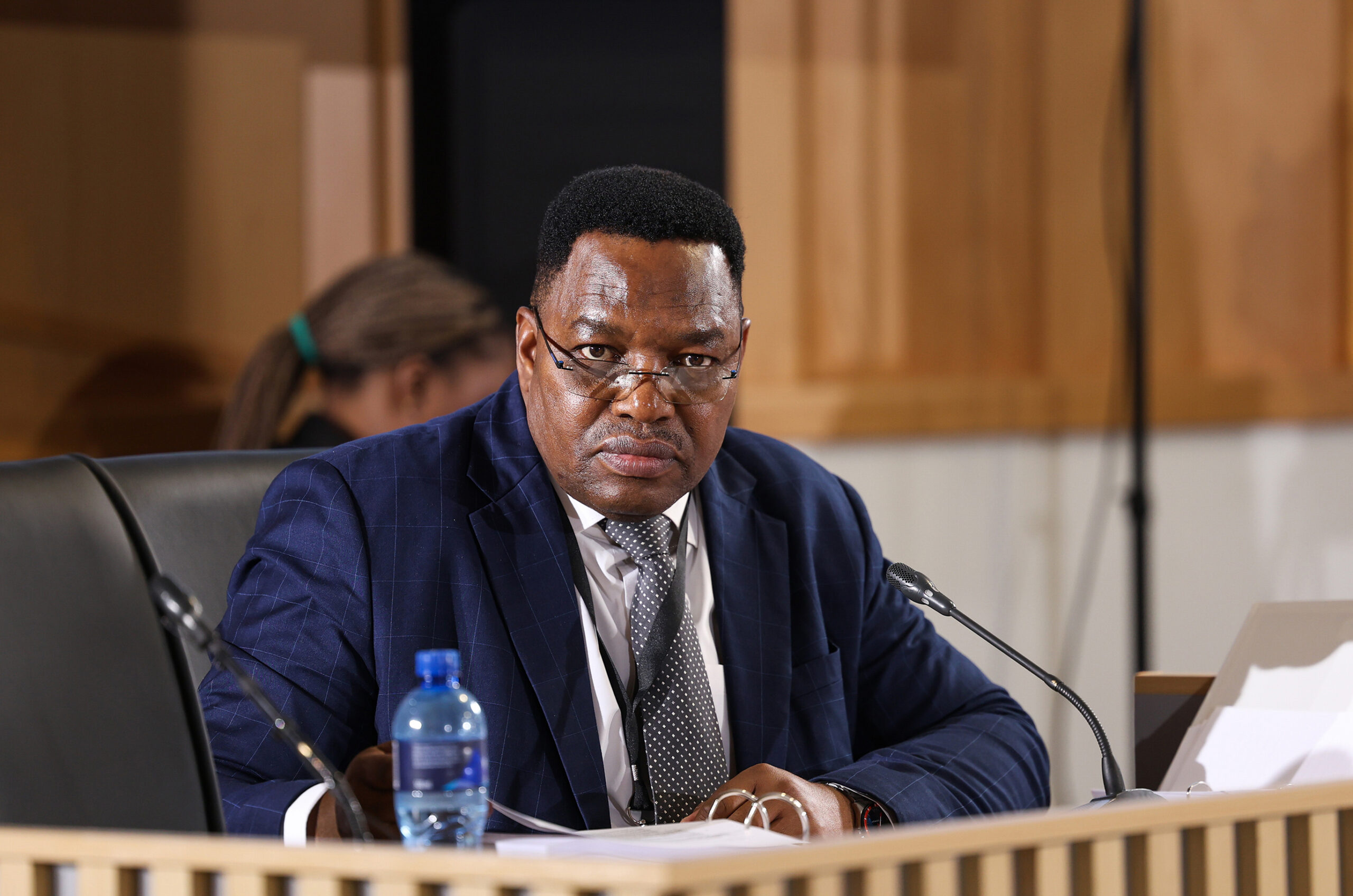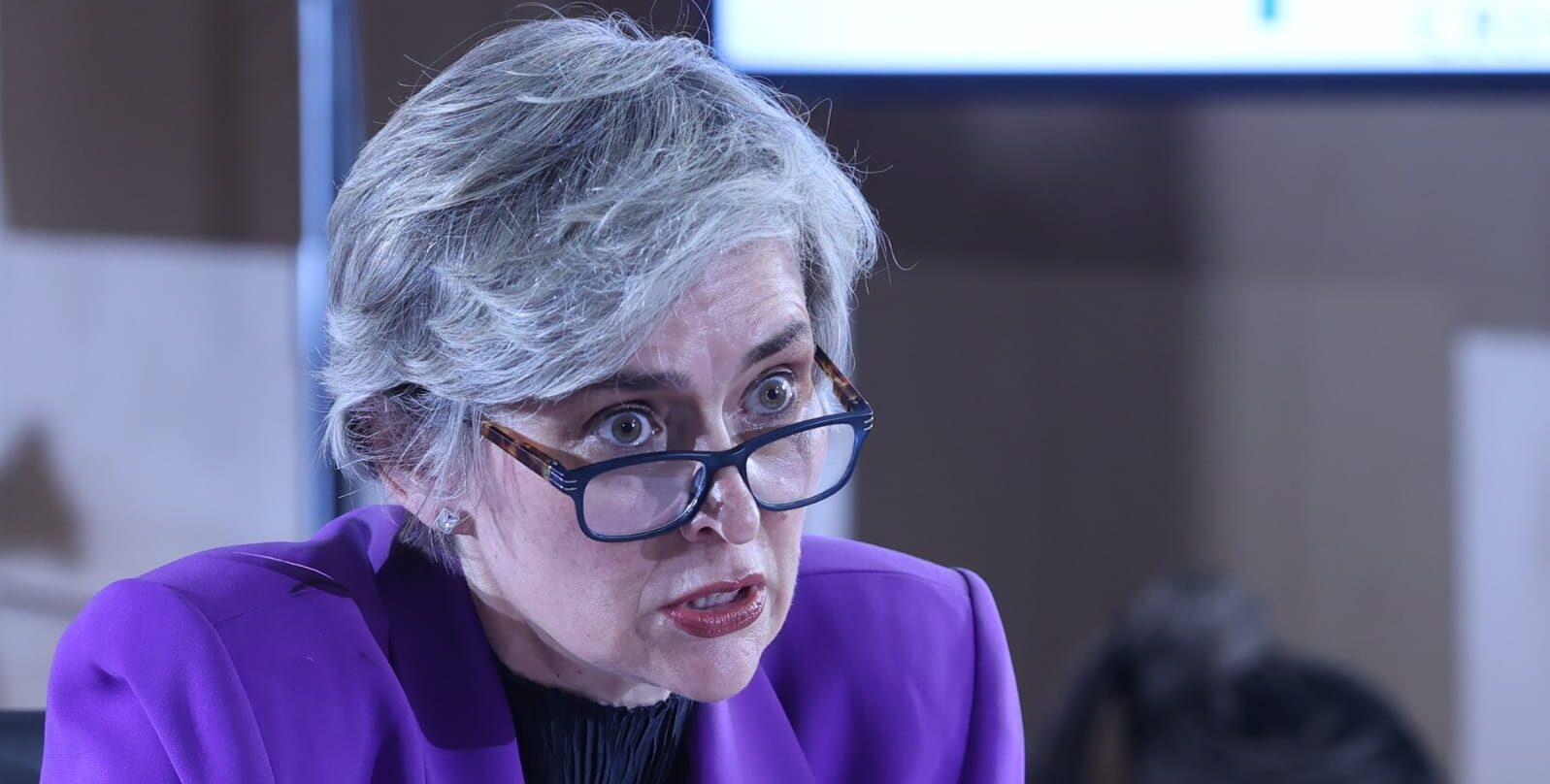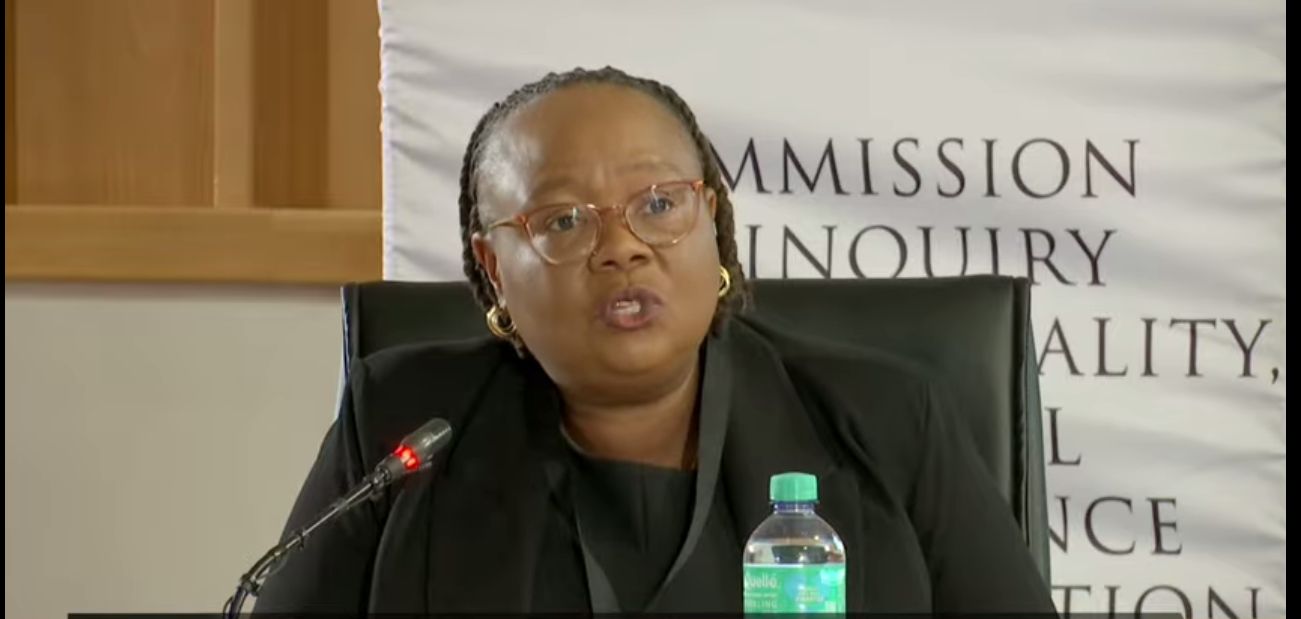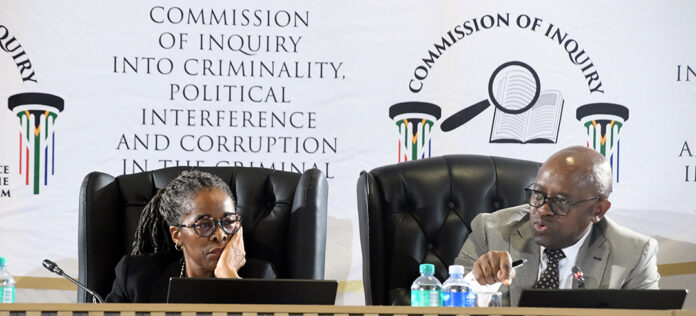It never rains but pours for embattled Police Minister Senzo Mchunu, whose name dominated week two of the proceedings at the judicial commission of inquiry into criminality, political interference and corruption in the criminal justice system.
Mchunu, who is on special leave, was lambasted by three different witnesses of the commission of inquiry this week for his December 31 2024 decision to immediately disband the KwaZulu-Natal (KZN) SAPS political killings task team (PKTT).
The second week of the commission of inquiry saw senior police officers and a senior prosecutor criticise Mchunu’s decision to disband the PKTT.
The commission’s proceedings are taking place at the Brigitte Mabandla Justice College in Pretoria.
Masemola pulled trigger first
Its first witness who fired a salvo against Mchunu this week was National Commissioner of Police Gen Fannie Masemola.
Masemola said Mchunu sent him a letter disbanding the PKTT without consulting him.
According to Masemola, Mchunu also failed to consult with Lieutenant-General Dumisani Khumalo. The latter is the project leader of the KZN PKTT. Mchunu also failed to consult provincial police commissioner Lieutenant-General Nhlanhla Mkhwanazi.
Khumalo is also the SAPS national head of crime intelligence.
Masemola described Mchunu’s letter dated December 31 2024, in which he instructed the task team to be dissolved. He said it was “shocking” and “surprising”, during his testimony to advocate Terry Motau SC, the commission’s chief evidence leader.
The “narrative that the task team was not effective was completely false”, said Masemola.
Mchunu described as sole decision-maker
“The minister did not consult me, General Masemola, and General Khumalo on the political killings task team. Nobody knows the work of the task team better than them. I wonder who he [Mchunu] consulted before deciding to disband the task team.
“It is completely false to say that the task team is not effective. If the minister had made himself available for a briefing on the task team, he would not have disbanded it,” said Masemola.

After Masemola, came Maj-Gen Petronella van Rooyen, the head of governance, legislation and policy at the legal services division of the SAPS.
Van Rooyen said Mchunu had no authority to disband the political killings task team.
“The direction was not supported by any legal authority. It was bordering on the operations of the police service. The minister deals with policy issues and not operations of the police service. It is the National Commissioner of Police who deals with operational issues.
“The decision by the minister to close the political killings task team fell outside his mandate and authority. [It] strayed onto operational matters. The minister does not have legal powers and authority to disband the task team,” said Van Rooyen.

The last witness this week was the National Prosecuting Authority (NPA) Director of Public Prosecutions (DPP) in KZN Adv Elaine Harrison.
Harrison said she never received any formal communication about the PKTT disbandment.
Negative impact on cases
“The removal of the 121 PKTT dockets affected cases that were not on the court roll. It affected ongoing investigations. There were many cases already on the court roll, ready for trial. Some of the dockets already had warrants of arrest. This removal affected our investigations,” said Harrison.
“We lost about three months of investigations due to the 121 dockets being taken away… The minister’s disbandment decision was counterproductive and destructive. As the NPA we are victim-centred when we do our work. To say to us we must immediately be disbanded does not make sense,” said Harrison.

After the conclusion of Harrison’s evidence, Madlanga said Khumalo will be the next witness to testify at the commission on Monday at 9:30am.
The commission was established by President Cyril Ramaphosa on July 13 after Mkhwanazi’s explosive media briefing on July 6 where he said politicians in parliament, police officers, metro police officers, correctional service officials, prosecutors and members of the judiciary are part of a criminal syndicate in Gauteng, and they are controlled by drug cartels and business people in Gauteng.



